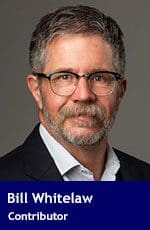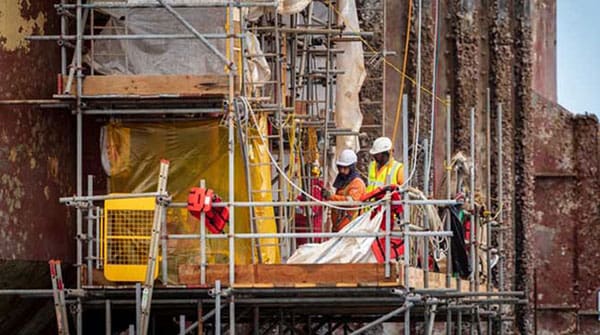Striking a balance between the petroleum industry and sustainability in Canada
 Dear Minister Steven Guilbeault:
Dear Minister Steven Guilbeault:
Please consider this an application to serve on the advisory committee I understand is being established as part of the new Sustainable Jobs Act process. Not being sure if there is actually an application portal for a real committee expected to do real work, I thought I would test the waters this way.
You see, Minister G., workforce stuff intrigues me. It’s important on so many levels, not the least of which is ensuring we think hard about the people dynamics which underpin the sometimes-fuzzy notions of “energy security and stability.”
One thing is certain: the right people, doing the right things, for the right reasons and at the right time, is critical to getting those things right.
The take on the United Nations 4R concept of soil nutrient management is deliberate: a sustainable environment – air, water, land – is the foundation on which this will all occur.
And when you look at workforce and employment dynamics through the lens of energy transition, the criticality of “getting it right” becomes even more apparent. Good policy and good legislation are critical to be sure, but even more paramount is to ensure all gears that sustain an inter-energy system of systems workforce are meshing as synchronously as they can.
History will tell us what we do now in terms of workforce planning will either mean a vibrant set of energy systems working with and inside of each other or Canada’s devolution into developing world stature – a place in which systems rub and jar against each other.
People will suffer as a consequence. Energy poverty and energy acrimony will prevail.
Those are the basics, Minister – the table stakes. The minimum ante at the biggest gambling table Canadian society faces.
But let’s get to the tougher questions. All is not well on this country’s energy medical chart. Our vital signs are far from sound, and the patient is barely ambulatory. Energy politics are, in large measure, to blame.
Let’s take petroleum and crack open that nut.
There are lots of folks in our oil and gas sector who think this proposed legislation is all about phasing out the petroleum business, a push by the uber-woke to create a system that powers everything with no costs, consequences, or tough choices. There’s a very real and tangible concern that Ottawa has no real clue as to how far evolved the hydrocarbon sector is in terms of its sustainability evolution. Indeed, its pace of late might qualify for revolutionary status.
Is there work to do? Mais oui, there is – plenty of distance to go before we sleep and all that. But we’re tracking to the right destinations, and people are at the centre.
Of course, you know this: Ottawa has been generous in funding programs like the Clean Resource Innovation Fund (CRIN) and Careers in Energy. (As part of the latter, I sit on a cool steering committee overseeing various workforce training programs designed to infuse sustainability thinking into petroleum sector workers. Hundreds of oil and gas folks are already engaged, and that number will soon be in the thousands.)
The reality is that the petroleum workforce is evolving, and pure economics dictates pure hydrocarbon vitality is critical for the next several decades if Canada is to remain what it is.
There is a middle ground between energy and sustainability. It looks like this: a robust oil and gas sector incentivized to keep on improving. Who cares if politicians want it: Canadians want it because it is so central to how we live our lives.
As a former political journalist, I know all about middle grounds. I know why headline writers do what they do and why politicos say what they say. These folks feed off each other in a weirdly symbiotic waltz of extremist two-stepping and self-aggrandizement, but when it spins to the poles, no one wins, least of the folks who might consider any form of energy as a career.
The problem with political proselytizing and fanboy media headlines is that they can really screw really good work. It’s happening as we speak.
A sound energy workforce is essential not just to the women and men in those jobs. A sound and integrated energy workforce – across all energy types – is foundational to a sound society and sound economy, both of which are needed to achieve environmental integrity.
This is why I am putting my hand up for this advisory work. I speak Next-Gen ESL: Energy as a Second Language. Yes, indeed: I’m fluent. Speaking this form of ESL means this: I can encode and decode context and meaning around energy, between seemingly divergent viewpoints and across regional and political fault lines.
I also have lots of experience being on, and running, advisory committees and delivering real results.
Minister, you need to avoid the trap of pork-barrelling this process and appointing people with no clue about energy.
Give this task to people who live and breathe this stuff. People respected within their various energy worlds for their ability to gaze beyond the rhetoric and grandstanding to the reality that needs doing.
Appoint a chair for and from each key energy system. Draw from post-secondaries. Mix up the genders and ages. Get the techies and call up the social scientists.
Get people with global perspectives and a passion for operating in the very cool nexus of the environment and the economy. Thrust indigenous communities into the spotlight. Carve out space for the NGOs.
Give this committee focus, autonomy, and mandate and then get out of the way.
This way, the Sustainable Jobs Act will unite Canada instead of dividing it across sectoral, regional and political fault lines.
The key is in the notion of Energy as a Second Language. Speaking commonsense in a common vernacular will work progressive wonders for an incredibly sustainable workforce.
If this is the kind of advisor you want, call me.
Bill Whitelaw is the Managing Director of Strategy & Sustainability with Geologic Systems.
For interview requests, click here.
The opinions expressed by our columnists and contributors are theirs alone and do not inherently or expressly reflect the views of our publication.
© Troy Media
Troy Media is an editorial content provider to media outlets and its own hosted community news outlets across Canada.
